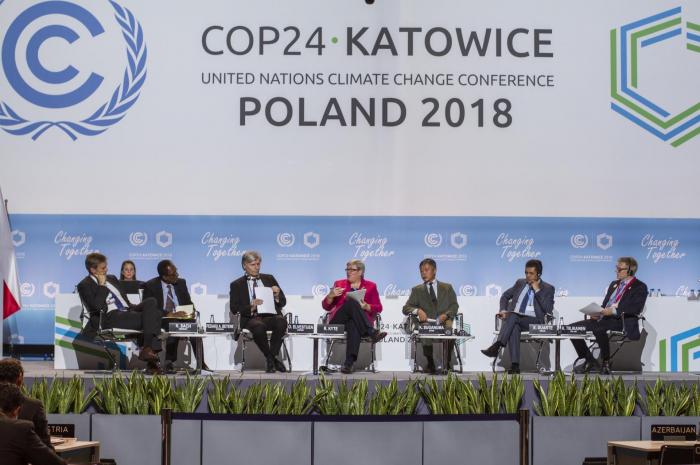The High-level meeting on the Pre-2020 Stocktake offered Ministers and Parties a valuable opportunity to assess the spectrum of climate action across the globe in the period before 2020.
Ministers highlighted both successes and remaining gaps in climate action.
Under the second commitment period of the Kyoto Protocol, developed countries have adopted targets for reducing their greenhouse gas emissions by 2020. These targets need to be achieved even though not enough Parties have ratified the Doha Amendment that will bring the second commitment period into force.
The Special Report on 1.5°C by the Intergovernmental Panel on Climate Change and recent reports by WMO and UNEP confirmed that significant gaps remain in pre-2020 action.
A few speakers stressed the need to keep up the pressure and prevent efforts to reduce emissions from simply slipping beyond 2020.
Yet speakers also highlighted a variety of useful approaches. Engaging non-Party stakeholders to achieve the goals of the Paris Agreement through partnerships was a common theme.
Some countries are seeking to build a circular economy that closes materials and energy loops. Others are restructuring industry, investing in low-carbon technology, promoting energy efficiency and increasing tree planting and reforestation.
The reform of the electricity sector can eliminate the power of monopoly providers and promote renewables and innovation.
While many activities and projects are working well, mitigation and adaptation are not occurring at the necessary scale and speed. A long-term strategic vision that addresses all economic sectors can be very helpful in this respect.
The overall conclusion was that, while much is being done to address climate change, a great deal more pre-2020 action is needed. The gap in pre-2020 ambition needs to be closed.
Climate finance
The pledge to mobilise USD 100 billion per year in climate finance for action in developing countries by 2020 is critical. This is vital for building confidence and enabling developing countries to fully participate in global efforts to address climate change.
Developed country speakers described the progress they are making towards achieving the 100 billion target. They also spoke about their work on improving the understanding of which sources and instruments should be included under the target.
Developing country speakers emphasized that the flow of finance needs to be speeded up and that the replenishment of the Green Climate Fund (GCF) was critical. They also stressed that accessing funding can be complicated and time consuming, particularly from multilateral funds.
To get finance flowing, the capacity of many countries to access finance needs to be strengthened. Enabling environments are also important for fully benefiting from climate finance.
It was also noted that, while there has been progress on financing, adaptation finance lags far behind mitigation. This is critical for the most vulnerable countries that urgently need to put adaptation measures in place.
The next high-level stocktake will take place in late 2019 at COP25.






